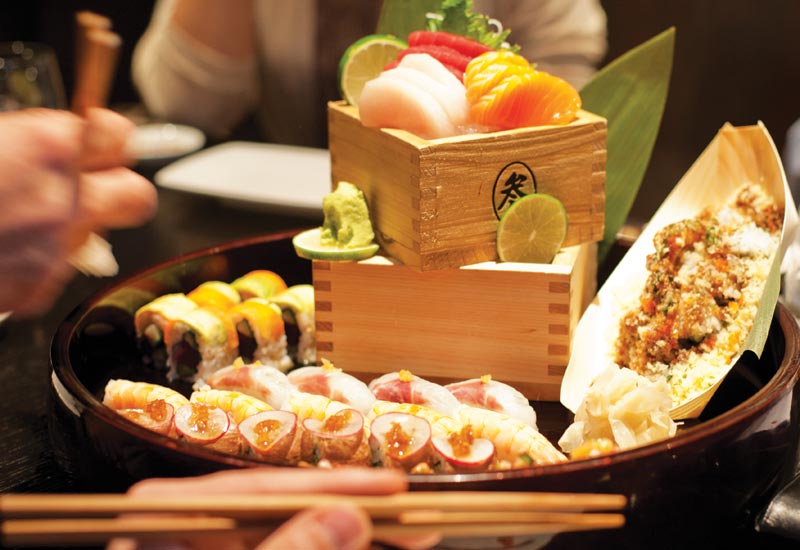The region’s seafood market is evolving and operators are trying to balance maturing tastes, sustainability issues and product quality. Lee Jamieson reports
Current trends point to a swell of interest around seafood, in turn broadening consumer tastes in the Middle East.
This has enabled chefs to reinvest in the raw quality of seafood produce and has forced F&B operators to accept greater responsibility for the sustainability of the species on their menus.

| Advertisement |
“There has been a gradual evolution of the whole food culture,” explains Embassy Dubai head chef, Maxime Le Van. “More experienced diners are demanding a wider variety of international-style cuisine, and there is growing awareness of sustainability.
“It is now the restaurant’s duty to seek out local and sustainable source ingredients. So, we’re now seeing the emergence of small local producers and farmers’ markets.”
Growing Demand
Local fisheries are in their infancy and are not yet able to keep pace with the region’s insatiable appetite for seafood.
The burgeoning F&B industry is a key driver behind this renewed demand, as Atoz Foods director John Eapen explains: “Demand for seafood from the Middle East’s HORECA segment has been growing in line with the high growth in the hotels segment. However, supply sources are getting tougher; especially for wild-caught products. Prices for wild-caught products are at their highest for many years and I wouldn’t be surprised if there is a further spike in prices.
“Farmed sea food products have been consistent and reliable but not all species can be farmed; therefore, I see a constant demand for both in this region.”
Demand has also been driven by consumers seeking out healthier alternatives – and seafood is perfectly positioned to deliver on both health and taste.
Chefs are following trend and are placing an emphasis on the quality of the fish, using uncomplicated recipes and authentic cooking methods to let the quality of the produce “speak for itself”.
The result has been fresh demand for high-end F&B concepts, like Marco Pierre White’s new restaurant, Wheelers of St. James, soon to open in the Dubai International Finance Centre.
“Once open, the menu will consist of almost 90% seafood dishes,” explains Simon Penhaligan, director of restaurant operations at Rmal Hospitality – the operator behind Wheelers of St. James, “and we anticipate the most popular dish will be the frutti di mare. This, in essence, is a sharing platter; and the assorted seafood cascading over crushed ice is sure to be alluringly appetising for seafood lovers.”
Article continues on next page ...









 Search our database of more than 2,700 industry companies
Search our database of more than 2,700 industry companies









